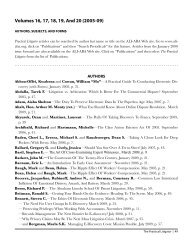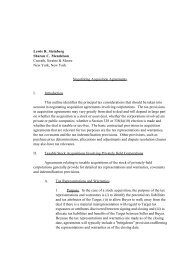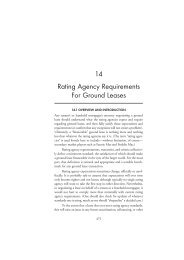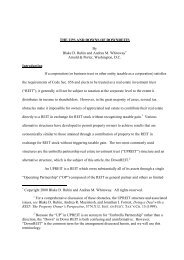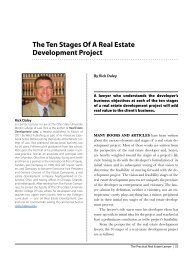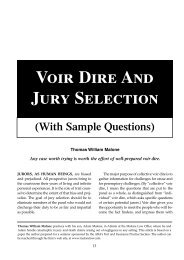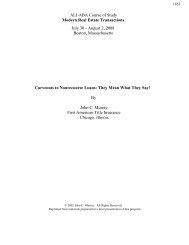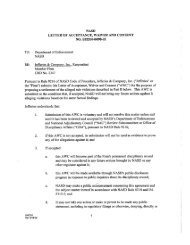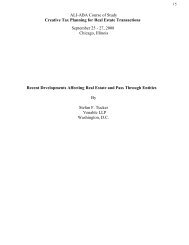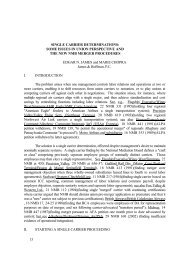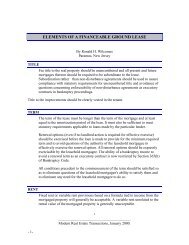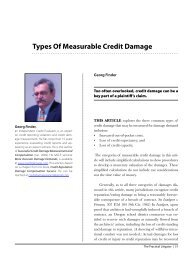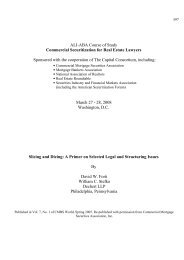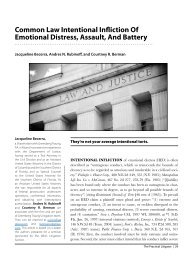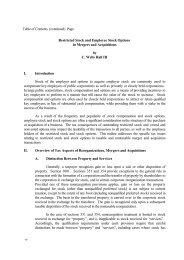ALI-ABA Course of Study International Trust and Estate Planning ...
ALI-ABA Course of Study International Trust and Estate Planning ...
ALI-ABA Course of Study International Trust and Estate Planning ...
Create successful ePaper yourself
Turn your PDF publications into a flip-book with our unique Google optimized e-Paper software.
34<br />
The taxpayer should also consider electing to have a corporation deemed<br />
liquidated by "checking the box" <strong>and</strong> filing Form 8858.<br />
4. Avoiding Anti-Deferral Regimes<br />
A nonresident alien can take steps to minimize (or completely avoid) the postimmigration<br />
impact <strong>of</strong> the anti-deferral regimes described above. 176<br />
If the application <strong>of</strong> an anti-deferral regime depends on a specified level <strong>of</strong><br />
ownership by U.S. persons (i.e., CFC), the regime can be avoided through transfers <strong>of</strong> stock to<br />
other nonresident aliens prior to becoming a U.S. resident. Such transfers may generally be<br />
accomplished, without U.S. tax consequences, either by sale or by gift. Care should be taken in<br />
choosing the recipient <strong>of</strong> stock, however, because the immigrating nonresident alien must be sure<br />
that any applicable constructive ownership rules will not cause the stock to be considered as<br />
continuing to be owned by him despite the transfer.<br />
If the application <strong>of</strong> an anti-deferral regime depends on a foreign corporation's<br />
ownership <strong>of</strong> assets that produce, or the actual receipt <strong>of</strong>, "bad" (generally, passive) income (e.g.,<br />
CFC, PHC, <strong>and</strong> PFIC), the regime can be avoided by restructuring the activities <strong>of</strong> the foreign<br />
corporation so as to reduce the level <strong>of</strong> "bad" income or assets below the threshold required to<br />
trigger the regime. Such a restructuring might be accomplished through a tax-free reorganization,<br />
liquidation, or distribution <strong>of</strong> "bad" activities or assets during the pre-immigration period.<br />
If the anti-deferral regime depends on the corporation’s being classified as a<br />
foreign person (e.g., CFC <strong>and</strong> PFIC), domestication <strong>of</strong> the foreign corporation, coupled with an<br />
"S" election 177 to treat the corporation as a flow-through entity, may be considered as a<br />
possibility, but the long-term consequences should be considered carefully. Alternatively, an<br />
LLC may be used.<br />
The nonresident alien could also choose to forego the prospect <strong>of</strong> tax deferral by<br />
electing under the "check-the-box" regime to treat the corporation as a flow-through entity (i.e.,<br />
as a partnership if it has more than one member, or as a disregarded entity if the nonresident<br />
alien is the sole shareholder), which would result in a deemed liquidation <strong>of</strong> the foreign<br />
corporation. 178 Conveniently, the deemed liquidation would permit the corporation's assets to<br />
receive a tax-free step-up.<br />
5. Transfers to Foreign Entities<br />
Any transfers that a nonresident alien is planning to make to a foreign<br />
corporation, foreign partnership, or foreign trust or estate should be accomplished during the preimmigration<br />
period. Once the nonresident alien becomes a U.S. resident, Sections 367, 684, <strong>and</strong><br />
721(c) may potentially apply to the transfer <strong>and</strong> trigger the recognition <strong>of</strong> gain on the transfer. 179<br />
176<br />
177<br />
178<br />
179<br />
See supra Section X.<br />
See §1361 et seq. See also Priv. Ltr. Rul. 9512001 (Sept. 30, 1994) (concluding that a<br />
domesticated foreign corporation may make an S election).<br />
See generally Treas. Reg. §301.7701-3. Assuming, <strong>of</strong> course, that the foreign<br />
corporation is not a type <strong>of</strong> entity that is treated as a per se corporation under the checkthe-box<br />
regulations. See Treas. Reg. §301.7701-2(b)(8).<br />
See supra Section VIII.E.<br />
{00187507-1} 30



